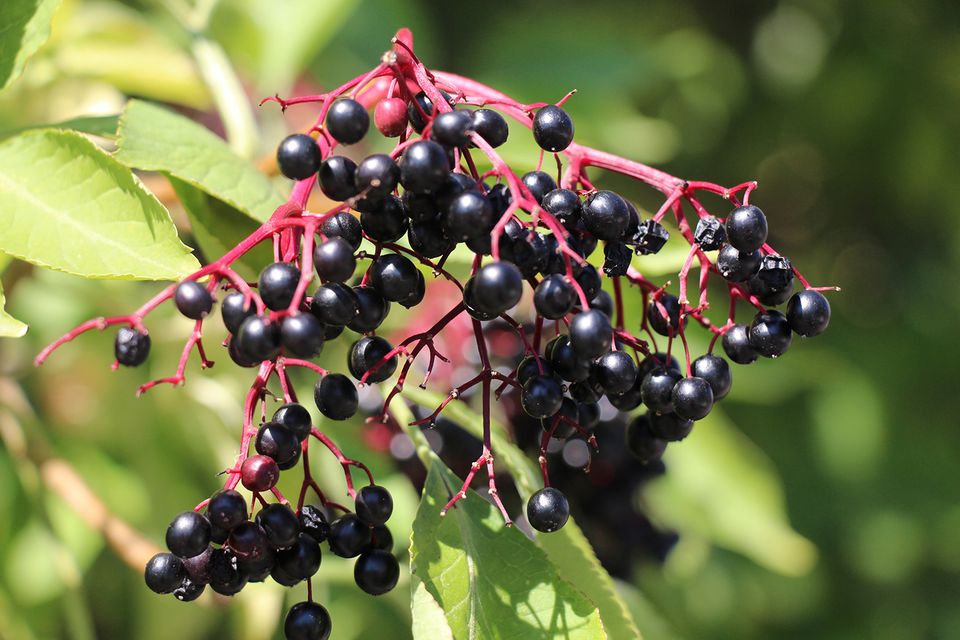

· By Kelin Marquet
Elderberry Benefits
Elderberry has been celebrated in folk medicine for centuries—dating as far back as 400 BC. Even Hippocrates, often called the “father of medicine,” referred to elderberry as his “medicine chest.” Today, modern research continues to explore this dark purple berry for its potential health benefits.
🌿 What Is Elderberry?
There are about 30 types of elder plants worldwide, but the most studied variety is the European elderberry (Sambucus nigra). Its flowers and berries have been used for centuries and are still among the most trusted forms today. You might also see it called black elder, European black elderberry, or real elderberry.

Hiccupy-Hiccups/Getty Images
How Can I Tell if I'm Getting Real Elderberry?
With elderberry’s rising popularity, not every label tells the whole truth. For example, It's common to see the term "elderberry juice"- this is NOT real elderberry extract!
To ensure quality, look for pure Sambucus elderberry extract listed on the supplement facts panel, not just under “other ingredients".
Always buy from a reputable brand that is GMP certified. Supplements are not regulated in the U.S., unlike prescription medications, and there are companies who take advantage of this lack of regulation to sell ineffective products with cheap imitation ingredients.
Why Not Natural has GMP certification on all of their products.
What Research Suggests
-
A randomized, double-blind, placebo-controlled trial of 60 adults with flu-like symptoms found that those taking elderberry extract (syrup, 15 ml four times/day for 5 days) experienced symptom relief about 4 days earlier than those with placebo. (1).
- In a study involving 312 long-haul travellers, supplementation with elderberry extract was associated with reduced duration and severity of cold symptoms, and fewer cold episode-days compared to placebo. (2)
- A systematic review (2021) examined several studies of elderberry for prevention and treatment of viral respiratory illnesses. It concluded that although some results are promising, the overall certainty of the evidence is low to moderate, in part because many studies are small or have methodological limitations. (3)
Elderberry and Anthocyanins
One of the reasons Sambucus nigra (European elderberry) is of interest is its rich content of natural plant pigments and polyphenols, especially anthocyanins, the compounds that give elderberries their deep purple color.
Anthocyanins are being studied for their antioxidant and anti-inflammatory properties. Research suggests they may help:
-
Protect cells from oxidative stress (damage caused by free radicals) (Młynarczyk et al., 2018 (5)
-
Support overall cellular health and healthy immune responses (Krawitz et al., 2011 (4)
-
Contribute to wellness through their role as bioactive plant compounds (Tapiero et al., 2002 (6)
While anthocyanins are being investigated for possible roles in conditions linked with oxidative stress (such as cardiovascular health or inflammation), more large, long-term studies are needed to fully understand their effects.
👉 If you’re interested in natural wellness insights, supplements, and everyday health strategies, don’t forget to subscribe to our newsletter! https://whynotnatural.com/pages/subscribe

This content is for informational purposes only and should not be taken as medical advice. Elderberry and other supplements are not intended to diagnose, treat, cure, or prevent any disease. Always consult a qualified healthcare professional before making changes to your supplement or wellness routine.
